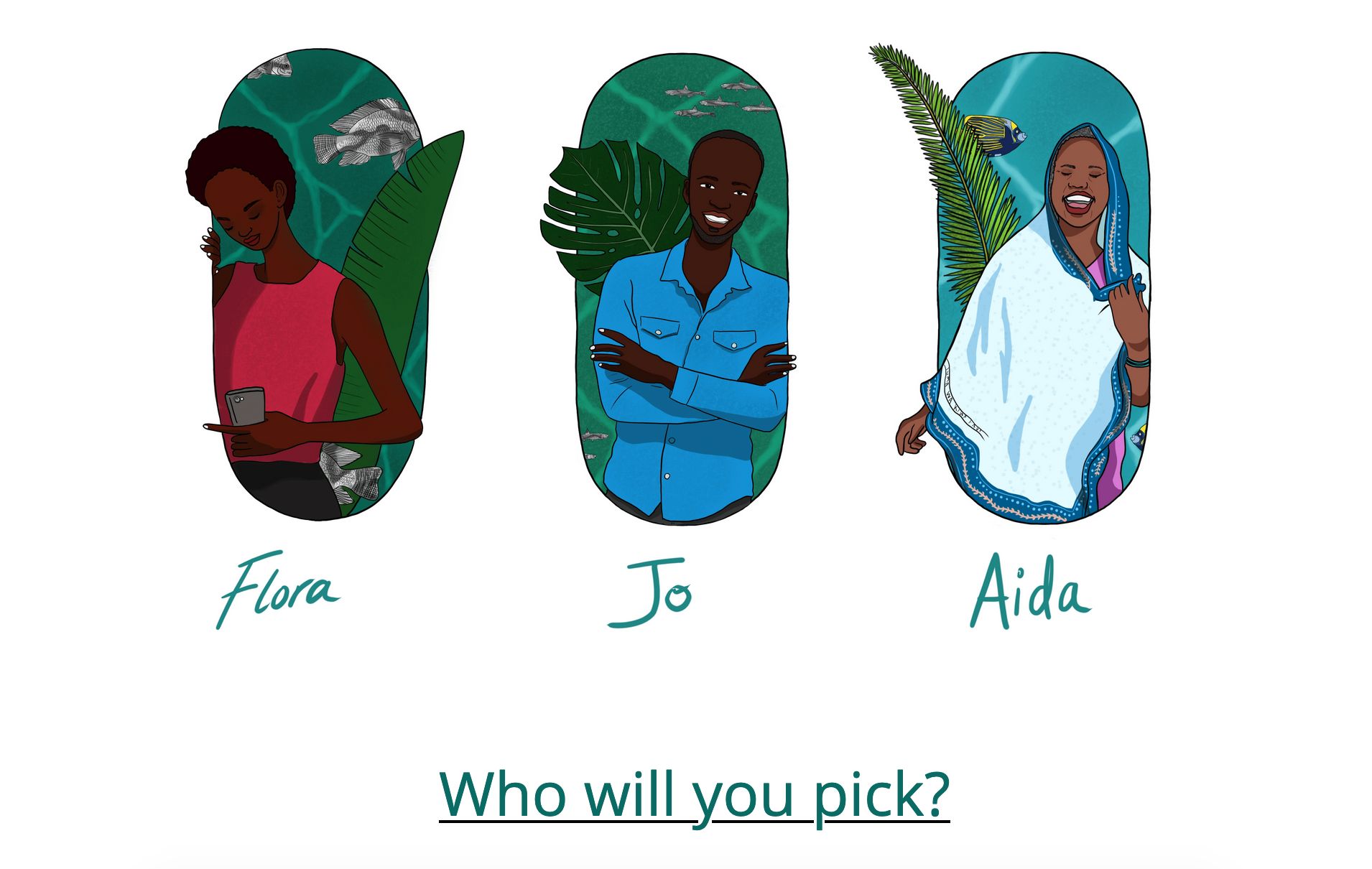Introducing Choose Your Own Fake News. This is part of a series of blog posts announcing projects funded by Mozilla Creative Media Awards
Discussions about disinformation, or “fake news,” tend to focus on the same few topics, like presidential elections in the U.S.
But disinformation is a chronic problem everywhere, from Nairobi to Kampala. It intersects with everything from employment to public health to real-world violence. And often, internet users in low-resource environments are even more vulnerable to disinformation.
This is the central idea behind “Choose Your Own Fake News,” a web-based game exploring how disinformation spreads across East Africa. Play the game at https://chooseyourownfakenews.com/
Players select one of three characters in East Africa: a student, a shopkeeper, or a retired grandmother. They then step into that character’s life and must scrutinize news headlines, videos, Instagram posts, and others content having to do with job opportunities, vaccines, and election violence.
Players’ decisions make the difference between correctly debunking disinformation — or falling victim to fraud, hospitalizing a loved one, and even accidentally inciting a mob.
The game is launching alongside a new episode of Terms and Conditions, a podcast exploring digital rights in Africa. The episode elaborates on the premise of Choose Your Own Fake News, looking at a history of online disinformation in Africa and how it intersects with bots, trolls, and beyond.

Choose Your Own Fake News is created by Pollicy, an Uganda-based organization supporting civic technology across the African continent.
Says Neema Iyer, founder and director of Pollicy and creator of Choose Your Own Fake News: “Online misinformation has real implications offline. It can threaten people’s lives, freedom of expression, and prosperity. This is especially true in parts of East Africa, where people are coming online for the first time and don’t yet have the proper context to distinguish what’s trustworthy from what’s not.”
Iyer continues: “Our game teaches new internet users how to be more discerning about the information they receive.”
Online misinformation has real implications offline. It can threaten people’s lives, freedom of expression, and prosperity.
Neema Iyer
Mozilla’s Creative Media Awards are part of our mission to realize more trustworthy AI in consumer technology. The awards fuel the people and projects on the front lines of the internet health movement — from creative technologists in Japan, to tech policy analysts in Uganda, to privacy activists in the U.S.
The latest cohort of Awardees uses art and advocacy to examine AI’s effect on media and truth. Misinformation is one of the biggest issues facing the internet — and society — today. And the AI powering the internet is complicit. Platforms like YouTube and Facebook recommend and amplify content that will keep us clicking, even if it’s radical or flat out wrong. Deepfakes have the potential to make fiction seem authentic. And AI-powered content moderation can stifle free expression.
Says J. Bob Alotta, Mozilla’s VP of Global Programs: “AI plays a central role in consumer technology today — it curates our news, it recommends who we date, and it targets us with ads. Such a powerful technology should be demonstrably worthy of trust, but often it is not. Mozilla’s Creative Media Awards draw attention to this, and also advocate for more privacy, transparency, and human well-being in AI.”
